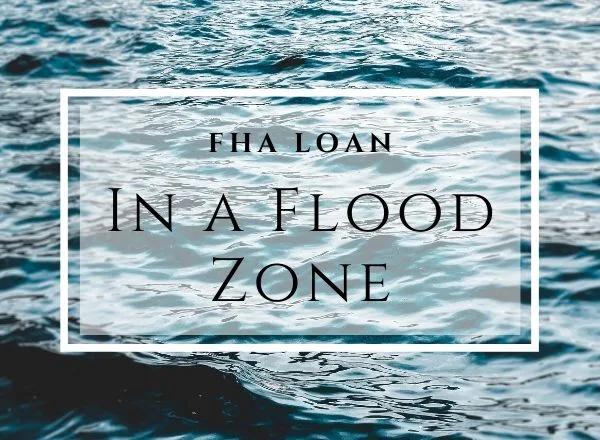Determining viable financing options for properties located in flood zones can pose a challenge for real estate investors. In such circumstances, the potential use of a hard money loan becomes a pertinent question. While traditional lenders may be hesitant due to the inherent risks associated with flood-prone areas, a hard money loan presents an alternative solution that warrants consideration. This article explores the feasibility of utilizing a hard money loan for properties situated in flood zones, shedding light on the benefits, potential limitations, and crucial factors to consider before taking this financing route.
What is a hard money loan?
Definition
A hard money loan is a type of short-term financing option typically used by real estate investors or individuals who are unable to qualify for traditional bank loans. Unlike traditional loans that are based on creditworthiness and income, hard money loans are backed by the value of the property being financed. These loans are often provided by private investors or companies and carry higher interest rates and fees.
Process
The process of obtaining a hard money loan involves several steps. First, you would need to find a hard money lender who is willing to finance properties in flood zones. Once you have identified a lender, you would need to submit a loan application and provide supporting documents such as property information, income verification, and credit history. The lender will then assess the value of the property and determine the loan amount based on the loan-to-value ratio. If approved, you will receive the funds, typically within a short period of time, and can proceed with purchasing or refinancing the property.
Criteria
Hard money lenders typically have specific criteria when it comes to financing properties in flood zones. They may require a certain loan-to-value ratio, which is the ratio of the loan amount to the appraised value of the property. Lenders may also consider the borrower’s credit history, income stability, and experience in real estate investing. Additionally, the property itself will be evaluated, taking into account factors such as flood risk, location, and potential for appreciation. Meeting these criteria is essential in order to qualify for a hard money loan for a property in a flood zone.
Understanding flood zones
What are flood zones?
Flood zones are geographic areas that have been designated by the Federal Emergency Management Agency (FEMA) based on the potential for flooding. These zones are categorized based on the level of flood risk, with areas designated as high-risk usually experiencing more frequent and severe flooding. Flood zones take into account factors such as proximity to bodies of water, elevation, and historical flood data. Understanding flood zones is crucial when considering the financing and insurance requirements for properties located in these areas.
FEMA flood zone classifications
FEMA classifies flood zones into several categories, including Special Flood Hazard Areas (SFHAs) and non-Special Flood Hazard Areas (non-SFHAs). SFHAs are areas with the highest risk of flooding and are further categorized into zones such as A, AE, V, and VE. Non-SFHAs are areas with a lower risk of flooding. These classifications play a significant role in determining insurance requirements and can impact the value of properties located in flood zones.
Impact on property value
Properties located in flood zones often face challenges when it comes to financing and insuring the property, which can impact their value. The perceived risk of flooding can make it more difficult to find traditional lenders willing to finance these properties, potentially limiting the pool of buyers and affecting market demand. Additionally, the higher insurance premiums associated with flood zones can add to the cost of owning or selling a property in these areas. It is important to carefully consider the potential impact on property value when evaluating the feasibility of using a hard money loan for a property in a flood zone.

Challenges of financing a property in a flood zone
Limited financing options
One of the primary challenges of financing a property in a flood zone is the limited options available. Traditional lenders, such as banks, may be reluctant to provide financing due to the increased risk of property damage and decreased marketability. This can make it difficult for borrowers to secure the necessary funds to purchase or refinance a property in a flood zone. However, hard money loans can provide an alternative source of financing for these properties, offering borrowers the flexibility they need.
Insurance requirements
Another challenge of financing a property in a flood zone is the insurance requirements imposed by lenders. Traditional lenders often require borrowers to obtain flood insurance coverage through the National Flood Insurance Program (NFIP) or private flood insurance providers. The cost of flood insurance premiums can vary depending on the flood risk zone and can significantly impact the affordability of owning a property in a flood-prone area. When considering a hard money loan, borrowers should carefully evaluate the insurance requirements and associated costs before proceeding.
Risk assessment
Financing a property in a flood zone also requires a thorough risk assessment. The potential for property damage and the associated costs of repair or reconstruction must be carefully considered. This includes evaluating the property’s elevation, historical flood data, and the effectiveness of existing flood mitigation measures. Conducting a comprehensive risk assessment can help borrowers determine the feasibility and potential challenges of using a hard money loan for a property in a flood zone.
Benefits of using a hard money loan for a property in a flood zone
Flexibility
One of the key benefits of using a hard money loan for a property in a flood zone is the flexibility it offers. Unlike traditional lenders who often have strict guidelines and criteria, hard money lenders may be more willing to work with borrowers in flood-prone areas. The loan terms can be tailored to suit the borrower’s specific needs, allowing for greater flexibility in terms of loan amount, repayment schedule, and other factors. This flexibility can be particularly advantageous when dealing with the unique challenges of financing a property in a flood zone.
Faster approval process
Hard money loans are known for their quick approval process compared to traditional bank loans. Since hard money lenders primarily focus on the value of the property rather than the borrower’s creditworthiness, the loan approval can be expedited. This faster approval process can be especially beneficial for borrowers in flood zones who may be facing time constraints or urgent financing needs. By obtaining a hard money loan, borrowers can access the funds they need in a shorter timeframe, allowing them to proceed with their real estate investment plans.
Asset-based lending
Hard money loans are typically asset-based, meaning the loan amount is determined by the value of the property rather than the borrower’s financial situation. This can be advantageous for borrowers in flood zones as it allows them to leverage the value of the property to secure financing, even if they have less-than-ideal credit or income history. Instead of relying solely on traditional underwriting criteria, hard money lenders focus on the collateral provided by the property. This asset-based lending approach can provide greater opportunities for borrowers in flood-prone areas to secure the necessary funds for their real estate projects.

Considerations before using a hard money loan for a property in a flood zone
Assessing flood risk
Before pursuing a hard money loan for a property in a flood zone, it is essential to conduct a thorough assessment of the flood risk. This includes evaluating the property’s location, proximity to bodies of water, and historical flood data. Assessing flood risk allows borrowers to make an informed decision about the potential challenges and costs associated with owning a property in a flood-prone area. Consulting with experts and reviewing local flood maps and data can provide valuable insights into the level of risk and help borrowers determine the feasibility of using a hard money loan for the property.
Insurance coverage
Understanding the insurance coverage requirements for properties in flood zones is crucial when considering a hard money loan. Traditional lenders typically require borrowers to obtain flood insurance coverage, and it is important to factor in the cost of insurance premiums when evaluating the financial feasibility of the investment. Additionally, borrowers should carefully review the coverage limits and exclusions of the insurance policy to ensure they are adequately protected against potential flood damage. By considering the insurance coverage requirements and associated costs, borrowers can make informed decisions about whether a hard money loan is the right financing option for their property in a flood zone.
Exit strategy
Having a well-defined exit strategy is essential when using a hard money loan for a property in a flood zone. Hard money loans are short-term financing options, and borrowers need to have a clear plan for repaying the loan within the agreed-upon timeframe. This includes considering factors such as property sale, refinancing options, or other means of obtaining long-term financing. Having a viable exit strategy in place helps borrowers avoid potential financial difficulties and ensures a smooth transition once the loan term ends. It is important to fully evaluate the exit strategy before proceeding with a hard money loan for a property in a flood zone.
Finding hard money lenders willing to finance properties in flood zones
Researching reputable lenders
When searching for hard money lenders willing to finance properties in flood zones, it is crucial to conduct thorough research and identify reputable lenders. Look for lenders who have experience working with properties in flood-prone areas and have a track record of successful transactions. Online resources, industry publications, and real estate networking events can provide valuable insights and recommendations for reputable hard money lenders. Take the time to review lender websites, read client testimonials, and assess their expertise in handling properties located in flood zones.
Reviewing lending criteria
Carefully review the lending criteria of potential hard money lenders before applying for a loan. Some lenders may have specific requirements or restrictions when it comes to financing properties in flood zones. Consider factors such as the loan-to-value ratio, credit score requirements, and terms and conditions of the loan. By reviewing the lending criteria upfront, borrowers can save time and avoid potential rejections or delays in the loan application process. Selecting a lender whose criteria align with your specific needs and circumstances increases the likelihood of a successful loan application.
Seeking recommendations
Seeking recommendations from industry professionals, real estate agents, or other investors can be a valuable resource when searching for hard money lenders willing to finance properties in flood zones. These individuals may have firsthand experience working with reputable lenders and can provide insights on their reliability, responsiveness, and overall satisfaction with the lending process. Networking within the real estate community and attending relevant industry events can help establish connections and access valuable recommendations. Utilizing these recommendations can streamline the process of finding reputable hard money lenders for properties in flood zones.

Negotiating loan terms with a hard money lender for a property in a flood zone
Loan-to-value ratio
The loan-to-value (LTV) ratio is an important factor to consider when negotiating loan terms with a hard money lender for a property in a flood zone. The LTV ratio represents the percentage of the property’s appraised value that the lender is willing to finance. Since properties in flood zones may carry additional risks, lenders may require a lower LTV ratio compared to properties in non-flood zones. Negotiating a reasonable and fair LTV ratio is crucial to ensure that the borrower can secure the necessary funds to purchase or refinance the property while reducing the lender’s risk exposure.
Interest rates and fees
Interest rates and fees associated with hard money loans are generally higher than those of traditional financing options. When negotiating loan terms, it is important to discuss and understand the interest rates and fees charged by the lender. Factors such as the borrower’s creditworthiness, loan amount, and property location may influence the interest rates and fees charged. Borrowers should compare multiple loan offers and carefully consider the potential costs associated with each option. Negotiating competitive interest rates and fees can help borrowers minimize the overall cost of financing a property in a flood zone.
Loan term and repayment schedule
The loan term and repayment schedule should be negotiated to align with the borrower’s needs and financial capabilities. Hard money loans are typically short-term loans, typically ranging from six months to a few years. When negotiating, borrowers should consider factors such as the property’s marketability, potential refinancing options, and their own financial circumstances. Extending the loan term beyond the initially agreed-upon period may result in additional costs and should be carefully considered. Negotiating a repayment schedule that is realistic and manageable can help borrowers avoid potential financial difficulties and ensure the successful repayment of the loan.
Insurance requirements for properties in flood zones
National Flood Insurance Program (NFIP)
The National Flood Insurance Program (NFIP) is a federal program that provides flood insurance coverage for properties located in flood-prone areas. Traditional lenders often require borrowers to obtain flood insurance coverage through the NFIP. The NFIP offers both building coverage and contents coverage, with coverage limits set by the program. It is important for borrowers to understand the specific coverage options and limitations within the NFIP, as well as the associated costs and deductibles. Compliance with NFIP’s insurance requirements is crucial when considering a hard money loan for a property in a flood zone.
Private flood insurance options
In addition to the NFIP, borrowers may also have the option to obtain private flood insurance coverage from private providers. Private flood insurance can offer more flexibility in terms of coverage limits, deductibles, and additional coverage options. It is important to carefully evaluate the terms and conditions, coverage limits, and costs associated with private flood insurance options. Comparing multiple insurance providers can help borrowers secure the most comprehensive and cost-effective coverage for their property in a flood zone. It is essential to verify that the private flood insurance policy meets the lender’s requirements.
Policy coverage to consider
When evaluating insurance requirements for a property in a flood zone, borrowers should consider several key coverage options. Building coverage provides protection for the structure of the property, including the foundation, walls, and permanently installed fixtures. Contents coverage, on the other hand, offers protection for personal belongings and movable property within the property. Additionally, policyholders should consider coverage for additional expenses, such as temporary living expenses, should the property become uninhabitable due to flood damage. By carefully considering these coverage options, borrowers can ensure that their property is adequately protected against potential flood damage.

Steps to mitigate flood risks for a property in a flood zone
Elevation and flood-proofing measures
One of the most effective steps to mitigate flood risks for a property in a flood zone is to elevate the property above the base flood elevation. Raising the property’s elevation can reduce the likelihood of flood damage and decrease flood insurance premiums. Additionally, implementing flood-proofing measures such as installing flood barriers, waterproofing walls, and using water-resistant materials can further protect the property from potential damage. Working with experts and professionals experienced in flood mitigation can help property owners identify the most appropriate measures to mitigate flood risks.
Implementing drainage systems
Properly designed and maintained drainage systems are essential in managing flood risks for properties in flood zones. Establishing proper drainage can help redirect water away from the property, minimizing the potential for flooding. This can include installing gutters, downspouts, and drain pipes to direct water away from the foundation. Additionally, proper landscaping techniques such as grading the property to promote water runoff can help reduce the risk of water accumulation around the property. Implementing effective drainage systems is a proactive measure to mitigate flood risks and protect properties in flood zones.
Property location considerations
When considering a property in a flood zone, the location of the property plays a crucial role in mitigating flood risks. Investing in properties that are located in areas with lower flood risks, such as properties located outside of designated flood zones or in higher elevation areas, can significantly reduce the potential for flood damage. Additionally, choosing properties that are further away from bodies of water or have natural features that offer protection, such as higher ground or natural barriers, can further enhance the property’s resilience to flooding. Carefully considering the property location and its inherent flood risk can help borrowers make informed decisions when using a hard money loan for a property in a flood zone.
Final considerations for using a hard money loan for a property in a flood zone
Expert consultation
Before proceeding with a hard money loan for a property in a flood zone, it is highly recommended to consult with experts in the field. Engaging with professionals experienced in real estate investing, flood risk assessment, and insurance can provide valuable insights and guidance throughout the process. These experts can help assess the viability of the property, evaluate risk factors, and provide recommendations on the best course of action. Seeking expert consultation ensures that borrowers make informed decisions and mitigate potential challenges when financing a property in a flood zone.
Analyzing financial feasibility
Thoroughly analyzing the financial feasibility of using a hard money loan for a property in a flood zone is crucial. This includes assessing the potential costs associated with the loan, insurance coverage, property maintenance, and potential flood damage. Additionally, considering the potential return on investment, market demand, and property appreciation in flood-prone areas is important. Conducting a comprehensive financial analysis helps borrowers determine the overall viability of the investment and whether it aligns with their long-term financial goals and risk tolerance.
Understanding local regulations
Understanding and complying with local regulations related to flood zones and property development is essential. Local regulations may include building codes, zoning restrictions, and floodplain management regulations. It is important to ensure that the property and any development plans comply with these regulations to avoid potential legal issues or delays. Working with professionals familiar with local regulations can help ensure compliance and smooth project execution. Understanding the local regulations associated with flood zones is a critical consideration when using a hard money loan for a property in these areas.
In conclusion, using a hard money loan for a property in a flood zone can provide financing options for borrowers facing challenges with traditional lenders. By thoroughly assessing flood risks, understanding insurance requirements, and evaluating various considerations, borrowers can make informed decisions about the financial feasibility of pursuing a hard money loan. Researching reputable hard money lenders, negotiating favorable loan terms, and understanding insurance options are important steps in the process. Mitigating flood risks through elevation measures, drainage systems, and property location considerations can help protect the property and enhance its long-term value. Finally, seeking expert consultation, analyzing financial feasibility, and understanding local regulations are crucial components to ensure the success and profitability of using a hard money loan for a property in a flood zone.




